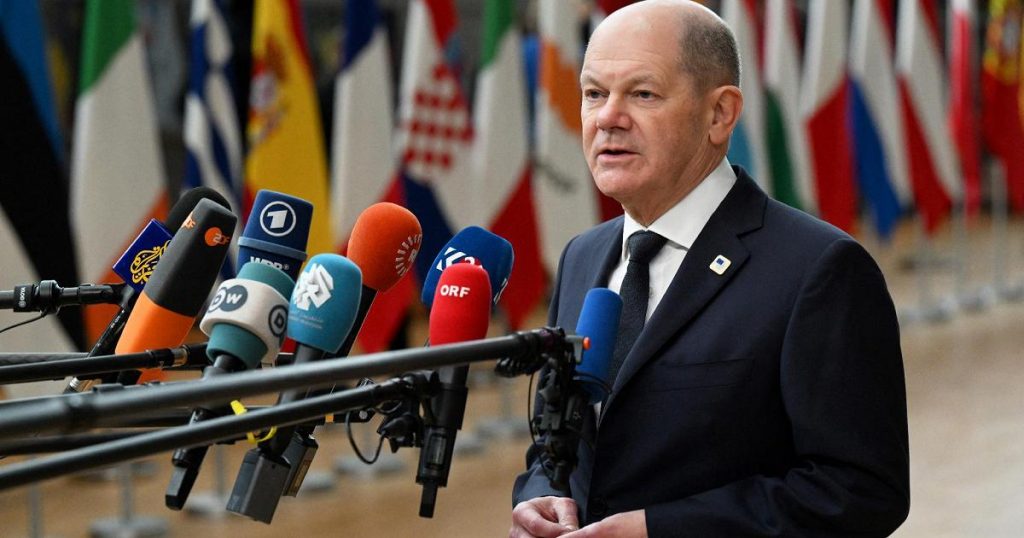The warning from Germany regarding the potential for the European Union to open up to extreme right-wing groups is causing concern for Ursula von der Leyen’s confirmation as head of the EU Commission. Before being voted on by groups in the European Parliament, von der Leyen must first be selected by heads of state and government. German Finance Minister Olaf Scholz’s comments, along with similar sentiments expressed by Spain’s Prime Minister Pedro Sanchez, highlight the importance of not underestimating the potential impact of aligning with far-right groups.
French President Emmanuel Macron also plays a significant role in the decision-making process, as he is considered a figurehead for European liberals. Pascal Canfin, a close ally of Macron, has expressed support for Mario Draghi to lead the EU. Von der Leyen will need the approval of these influential countries, as well as the backing of Polish Prime Minister Donald Tusk and Greek Prime Minister Kyriakos Mitsotakis from her own political group. The outcome of the decision-making process may be influenced by the strengthening relationships between Paris, Berlin, and Warsaw.
Scholz’s remarks came just before a debate among the Spitzenkandidaten, where von der Leyen confirmed her willingness to engage with Meloni and Brothers of Italy, but not with the entire group of Conservatives and Reformists. Scholz emphasized the importance of not relying on support from right-wing extremist forces in the European Parliament and called for a majority based on traditional parties like the EPP, Socialists, and Liberals. The future composition of the European Parliament may see a clash between different potential majorities.
On the right side of the political spectrum, there are also adjustments happening following the expulsion of the German Afd party from the ID group. Matteo Salvini reiterated the distinction between Lega and FdI within the EU, stating that he would not vote for von der Leyen. As von der Leyen enters the final two weeks of campaigning before crucial discussions around top EU positions, the landscape remains uncertain. The possibility of Mario Draghi joining either the Commission or the European Council is also being contemplated.
The upcoming informal dinner on June 17th, following the peace conference in Lucerne, will be a key moment for von der Leyen and the potential candidature of Mario Draghi. The decision-making process will be crucial in determining the next steps for the EU leadership. Tajani highlights the need for a political force to nominate Draghi for a leadership position, emphasizing that von der Leyen’s candidacy is not binding. However, it seems likely that a member of the EPP will be selected for the Commission if they are the largest party after the elections.


